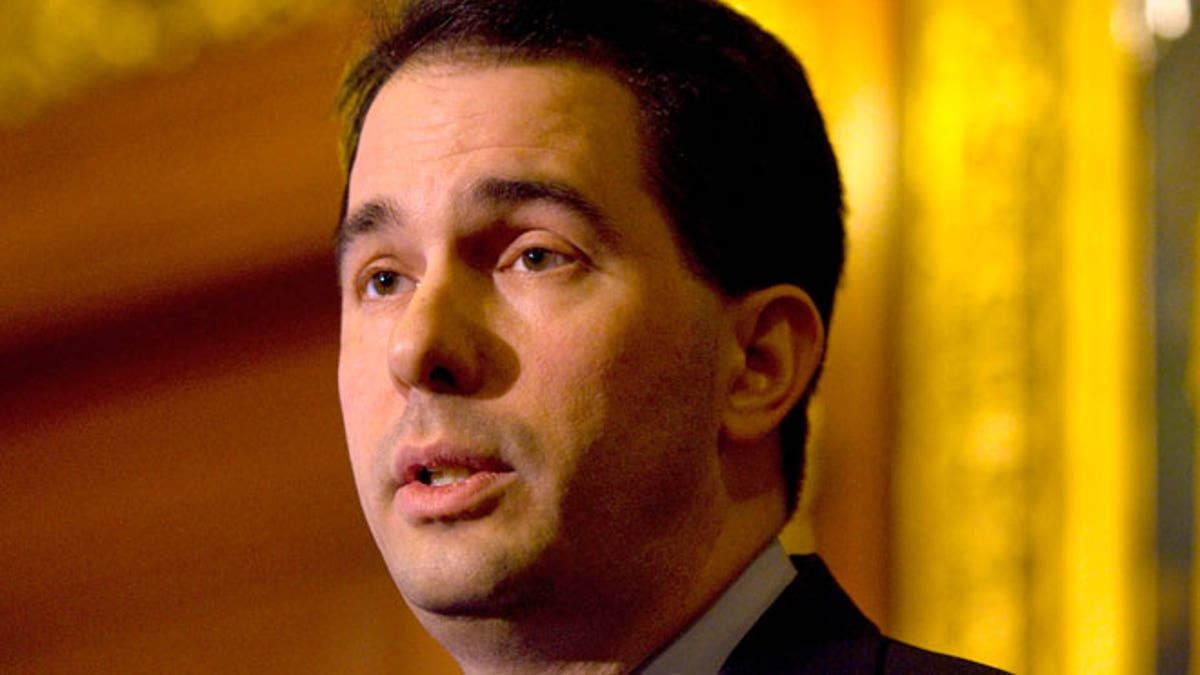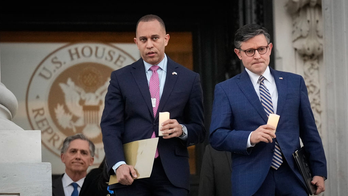
FILE: Wisconsin Republican Gov. Scott Walker says a middle school teacher who viewed pornography on his classroom computer but was allowed to return to work should have his license revoked. (Reuters)
MADISON, Wis. – Gov. Scott Walker on Tuesday called on the state superintendent to act swiftly in revoking the license of a middle school teacher who viewed pornography on his classroom computer but was allowed to return to work after his union objected to his being fired.
Walker, in his letter to state Superintendent Tony Evers, also used the case of Middleton-Cross Plains Area School District teacher Andrew Harris as a defense of Act 10, the 2011 law he championed that effectively did away with most union rights for teachers and other public workers.
"Cases, such as this one, are a good example of why our reforms are necessary," Walker said in the letter to Evers, who opposed the union law and even signed a petition to recall Walker from office because of it.
Harris's license has been under investigation since 2010, when he was fired, and Evers spokesman Patrick Gasper said he could not comment on the ongoing investigation. State law precludes releasing details other than the date of a revocation hearing, and no such hearing has been set for Harris.
Harris' attorney, William Haus, called Walker's letter "idiotic" and said the governor doesn't know what he is talking about.
"My guy made a mistake. He shouldn't have done what he did," Haus said. "That doesn't mean he should get hung from the highest tree."
The Middleton school board voted to fire Harris in 2010 and suspend six other district employees for viewing and sharing porn and sexually inappropriate images, jokes or videos on district computers.
But the teachers union appealed, saying firing Harris was too severe a penalty. An arbitrator in 2012 agreed, saying Harris' firing went too far because a district investigation found others were doing the same or similar types of things but only received suspensions, warnings or no punishment at all.
The school board appealed but the state Supreme Court refused to take up the case. That cleared the way for Harris, who teaches seventh grade science, to return to the classroom on Monday.
"After hearing from concerned parents, I am asking you to act efficiently in your investigation into the actions of Mr. Harris and to initiate revocation proceedings," Walker wrote to Evers. "The arbitration process afforded to Mr. Harris failed the school district and the students."
Walker said in his letter to Evers that Harris' actions appear to meet the definition of immoral conduct under the law giving Evers the ability to revoke his teaching license. The law was expanded in 2011 to specify that immoral conduct includes the viewing of porn on a school district computer.
But that law was passed a year after Harris was fired, so it doesn't apply in his case, according to Haus, his attorney. Because Harris' firing was undone by the arbitrator, there should no longer be an investigation into his license since it was the firing in 2010 that triggered it, Haus said.
"Now we're going to start over again?" Haus said. "That's this guy, Scotty K. Walker, that's his idea of how the system is supposed to work? ... That guy doesn't know where his power begins or ends. The truth is, this isn't any more his business than it is anyone else's out there."




